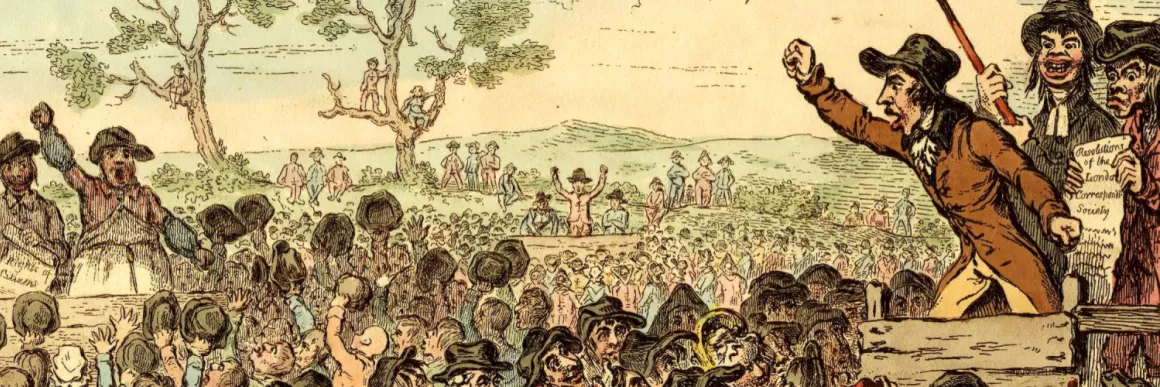Capitalizing on the conjunction of renewed scholarly interest in Thelwall and new archival finds, this collection of essays addresses the central question of the coherence and continuity of Thelwall’s diverse pursuits—literary, political, scientific, therapeutic, elocutionary, and journalistic—across the four decades of his career (c. 1790-1830), and provides new insight into Thelwall’s eclipse and persistence in the nineteenth century.
Abstract
This article presents arguments for continuities in John Thelwall’s life and career from the early 1790s through to the new century, post-1800. Thelwall’s westward migration in 1797 is explored in detail, as is the publication of his essay "The Phenomena of the Wye" in the Monthly Magazine for May and July of 1798. Consideration is given to Thelwall’s various identities, and to the political/cultural significances of England’s west country between 1797 and 1819. Thelwall’s friendship with Coleridge is assessed in the light of intractable differences between the two men.
Abstract
This essay explores the political significance of John Thelwall’s engagement with the discourse of the picturesque in his travel writing of the 1790s. E. P. Thompson asserted that Thelwall’s turn to travel writing in the immediate aftermath of his metropolitan radical career demonstrated the success of the authorities in driving him out of politics.
Abstract
John Thelwall’s elocutionary career has frequently been understood as a renunciation of his revolutionary politics. This essay questions such an assessment. I argue that once we understand the associationist model of mind that guides both Thelwall’s elocutionary work and his political philosophy, we see that throughout his career Thelwall was pursuing a common end: strengthening associations in the minds that inhabited, and created, the public sphere.
Abstract
This essay argues for a reassessment of John Thelwall’s career as an elocutionary scientist in light of recent work in the history of medicine and Disability Studies. Traditionally understood as apolitical—at least in comparison to his involvement in radical politics and materialist science—Thelwall’s therapeutic endeavor should instead be recognized as significantly demonstrating his continued dedication to democratic ideals.
Abstract
In the years following his acquittal for High Treason in 1794, John Thelwall came to personify all that English loyalists most feared about the plebeian democrats of the London Corresponding Society. In loyalist discourse, he became at one and the same time, an intemperate but horribly effective Jacobin orator, and a covert conspirator working quietly behind the scenes to ally the Foxite opposition with the LCS and some of its insurrectionary fellow travellers.
Abstract
From January to June 1826, Thelwall edited, wrote, and marketed The Panoramic Miscellany, a monthly periodical that demonstrates his ongoing commitment to political causes, public education, elocutionary training, and literary criticism.
Abstract
This essay traces the meandering career of Weymouth Birkbeck Thelwall, the son of John Thelwall and his former pupil and second wife, the young and beautiful Henrietta Cecil Boyle. Born on the eve of reform and near the end of John Thelwall’s life, Weymouth followed in his father’s artistic, adventurous and amorous footsteps; creating his own peripatetic journey which led him eventually to a tragic and isolated death in colonial Nyasaland.

